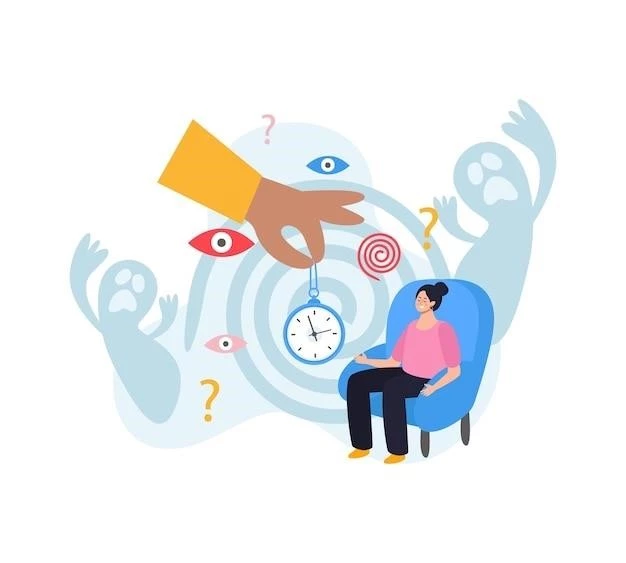Understanding Conversion Disorder
This article will cover the causes, symptoms, and treatment options for Conversion Disorder. Additionally, it will provide insights on overcoming the disorder, differentiating it from other illnesses, coping strategies, seeking help, and its impact on daily life.
Introduction to Conversion Disorder
Conversion Disorder is a condition where psychological stress manifests as physical symptoms. Individuals may experience paralysis, tremors, or loss of sensation without a known neurological cause. This disorder can be distressing and impact daily life. It’s crucial to seek professional help to understand and manage the condition effectively. Through this article, you will gain valuable insights into the causes, symptoms, treatment options, coping strategies, and ways to overcome Conversion Disorder. Understanding the nuances of this disorder is the first step towards improving your quality of life and well-being.
Causes of Conversion Disorder
The exact causes of Conversion Disorder are not fully understood, but it is believed to stem from psychological factors rather than medical conditions. Trauma, stress, or emotional conflicts may lead to the development of this disorder. Unresolved emotional issues or a history of abuse can also play a role. It’s essential to address underlying emotional distress through therapy and counseling to help manage and treat Conversion Disorder effectively. Seeking professional help to explore and work through these psychological factors is crucial for a comprehensive recovery journey.
Symptoms of Conversion Disorder
Symptoms of Conversion Disorder vary but often involve sensory or motor function impairments that cannot be attributed to a specific medical condition. Common symptoms include weakness, paralysis, speech difficulties, non-epileptic seizures, or movement disorders. These manifestations may be sudden and can significantly impact daily life and well-being. It’s essential for individuals experiencing these symptoms to seek medical evaluation to rule out other potential causes and receive appropriate care. Understanding the range of symptoms is the first step in effectively managing and treating Conversion Disorder.
Treatment Options for Conversion Disorder
Treatment for Conversion Disorder typically involves a multidisciplinary approach. Psychotherapy, such as cognitive-behavioral therapy (CBT) and psychodynamic therapy, can help address underlying psychological issues. Physical therapy and occupational therapy may aid in managing physical symptoms. Medications to target comorbid conditions like anxiety or depression may also be prescribed. Collaboration with healthcare professionals, including psychiatrists, psychologists, and neurologists, can help tailor a treatment plan to individual needs. It’s crucial to be proactive in seeking treatment and adhere to the recommendations provided to effectively manage and alleviate symptoms of Conversion Disorder.

Overcoming Conversion Disorder
Overcoming Conversion Disorder requires perseverance and a holistic approach. Consistent engagement in therapy sessions, both individual and group, can facilitate understanding and management of symptoms. Developing coping mechanisms to deal with stressors and triggers is essential. Embracing lifestyle changes, such as regular exercise, mindfulness practices, and healthy habits, can support overall well-being. Educating oneself about the disorder and seeking support from loved ones can aid in the recovery process. Remember, progress may take time, but with dedication and professional guidance, it is possible to overcome the challenges posed by Conversion Disorder.
Difference Between Conversion Disorder and Other Illnesses
It’s important to differentiate Conversion Disorder from other illnesses to ensure accurate diagnosis and treatment. Unlike neurological conditions like epilepsy or stroke, Conversion Disorder lacks corresponding brain abnormalities. This disorder is predominantly psychological in origin, with physical symptoms arising from emotional distress. Distinguishing between Conversion Disorder and medical conditions is crucial for appropriate management. Medical professionals use specific criteria, including the absence of neurological findings, to differentiate Conversion Disorder from other diseases. Seeking expert evaluation and understanding these distinctions can guide the journey towards effective treatment and recovery.
Coping Strategies for Conversion Disorder
Developing coping strategies is essential for managing Conversion Disorder. Engaging in relaxation techniques like deep breathing or meditation can help reduce stress levels and alleviate symptoms. Keeping a symptom journal to track patterns and triggers may provide insights for better symptom management. Building a strong support system of family, friends, and healthcare professionals can offer emotional support and guidance. Establishing a routine, maintaining a healthy lifestyle, and setting achievable goals can contribute to overall well-being. Remember, each individual may respond differently to coping strategies, so it’s essential to find what works best for you through trial and adjustment.
Seeking Help for Conversion Disorder
Seeking help for Conversion Disorder is a crucial step towards managing the condition effectively; Start by consulting a healthcare professional, such as a psychiatrist or psychologist, who specializes in mental health. Openly discuss your symptoms and concerns to receive an accurate diagnosis and personalized treatment plan. Be proactive in attending therapy sessions and adhering to recommended medications or interventions. Joining support groups or online communities can provide additional encouragement and understanding. Remember, seeking help is a sign of strength, and with the right support system, you can navigate the challenges of Conversion Disorder and work towards a better quality of life.
Impact of Conversion Disorder on Daily Life
Conversion Disorder can have a profound impact on daily life, affecting personal relationships, work, and overall well-being. Physical symptoms may lead to challenges in performing daily tasks or participating in social activities. Emotional distress caused by the disorder can increase feelings of isolation and anxiety. It’s essential to recognize these effects and seek professional help to manage symptoms effectively. Developing coping strategies, maintaining open communication with loved ones, and staying committed to treatment can help minimize the disruption that Conversion Disorder may bring to your daily life. Remember, with patience, support, and proactive management, it is possible to navigate the obstacles posed by this condition and lead a fulfilling life.
